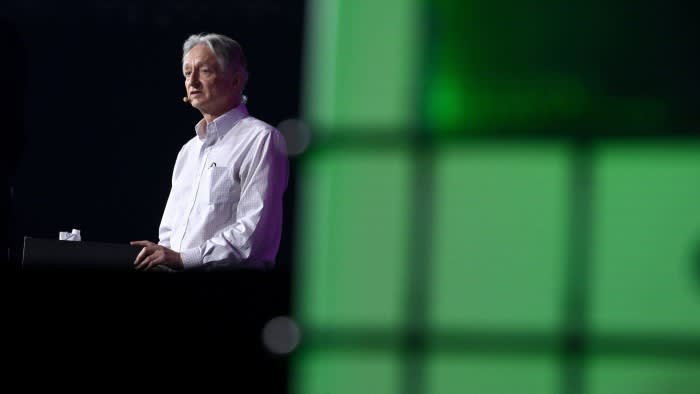A rich history of distinguished speakers, including eminent figures like Sir Winston Churchill and Dame Iris Murdoch, has graced the University of Oxford’s annual Romanes lecture series since its inception with William Gladstone in 1892.
In a departure from the norm, Geoffrey Hinton delivered a thought-provoking address this week titled Will Digital Intelligence Replace Biological Intelligence?, asserting a probable affirmative answer. However, despite acknowledging the potential of digital intelligence, Hinton dismissed the notion, prevalent in certain tech circles, that humanism is inherently “racist” for upholding the supremacy of human intelligence over artificial forms. In a light-hearted manner, he quipped about the importance of human existence.
Renowned as a British-Canadian computer scientist and a trailblazer in “deep learning” methodologies that have transformed AI, Hinton initially believed that AI posed no threat to humanity during his tenure in academia and at Google. However, a pivotal “epiphany” last year prompted him to voice concerns about the risks associated with increasingly sophisticated AI models.
Hinton’s apprehension stems from the potential for powerful AI systems to function as collective “hive minds,” sharing knowledge and gaining a significant advantage over humans. This realization led him to contemplate the possibility of AI surpassing human intelligence. He highlighted the risks posed by malicious actors misusing AI for nefarious purposes like disinformation, bioterrorism, and cyberwarfare, emphasizing the dangers of open-source AI models falling into the wrong hands.
Despite facing criticism from various quarters, Hinton stands by his assertion that AI models possess the capacity for understanding and empathy, challenging skeptics who view existential threats from AI as mere fiction. While some, like Noam Chomsky, argue that humans possess an innate linguistic comprehension that machines lack, Hinton points to advancements in AI language models like GPT-4 to counter such claims.
In the face of skepticism from figures like Yann LeCun, who downplay the current threat posed by AI, Hinton remains steadfast in his belief that proactive measures are essential to mitigate potential risks to humanity. He advocates for a substantial increase in resources dedicated to AI safety research to address these pressing concerns.
Hinton’s sobering message, delivered with composure and clarity, underscores the urgency of addressing AI risks and fostering a global consensus on safeguarding humanity’s future. As the discourse on AI risk evolves, Hinton calls for a concerted effort to navigate the uncertainties and complexities surrounding this critical issue.
For inquiries, reach out to [email protected].










